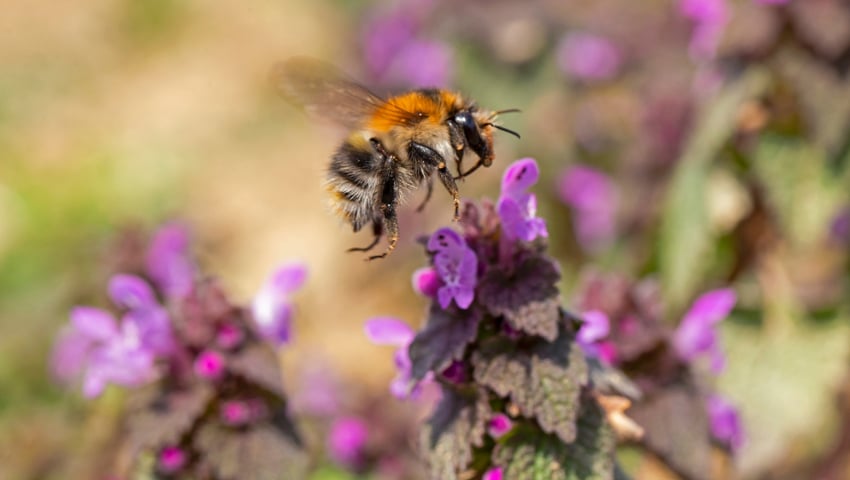A complete ban on use of bee-killing neonicotinoid pesticides has moved a step closer, as the government sets out its plans to deliver a key election pledge.
Despite being banned from general use in the UK, the last government authorised the use of neonicotinoids every year for the last four years in England via a process known as emergency authorisation.
Neonicotinoids are extremely toxic to pollinators. Even at doses that are not directly fatal to bees they can cause cognitive problems impacting foraging abilities and the productivity of hives. The chemicals can also persist in the soil creating a further risk to bees.
Bees and other pollinators are crucial to the agricultural economy with the economic benefits of pollination to crop production in the UK estimated at £500 million annually.
The government has now set out its next steps, including identifying legislative options that would legally prevent the future use of three specific neonicotinoids – clothianidin, imidacloprid and thiamethoxam.
Environment Minister Emma Hardy said, “We are delivering on our promise to ban toxic bee-killing pesticides and ending the long-term decline of our wildlife. A healthy environment is vital to our food and economic security. Protecting bees by stopping the use of damaging neonicotinoids is an important step in supporting the long-term health of our environment and waterways, and our farming sector.”
The move comes ahead of the publication of a new UK National Action Plan (NAP), which will set how pesticides can be used sustainably.
Craig Bennett, chief executive of The Wildlife Trusts, welcomed the move. He said, “Ending the use of deadly chemicals is fundamental for both food security and nature recovery, because farming relies on a healthy natural world.
“Bees and other insects contribute hundreds of millions of pounds to the UK economy each year through natural pollination. We know that responsible farmers don’t want to use these chemicals, so industry needs to provide better support to transition to chemical-free alternatives.
“The expert advice is clear that the environmental risk of using these chemicals far outweighs the economic benefits. Policymakers must follow the science and never authorise the emergency use of neonicotinoids again.”
